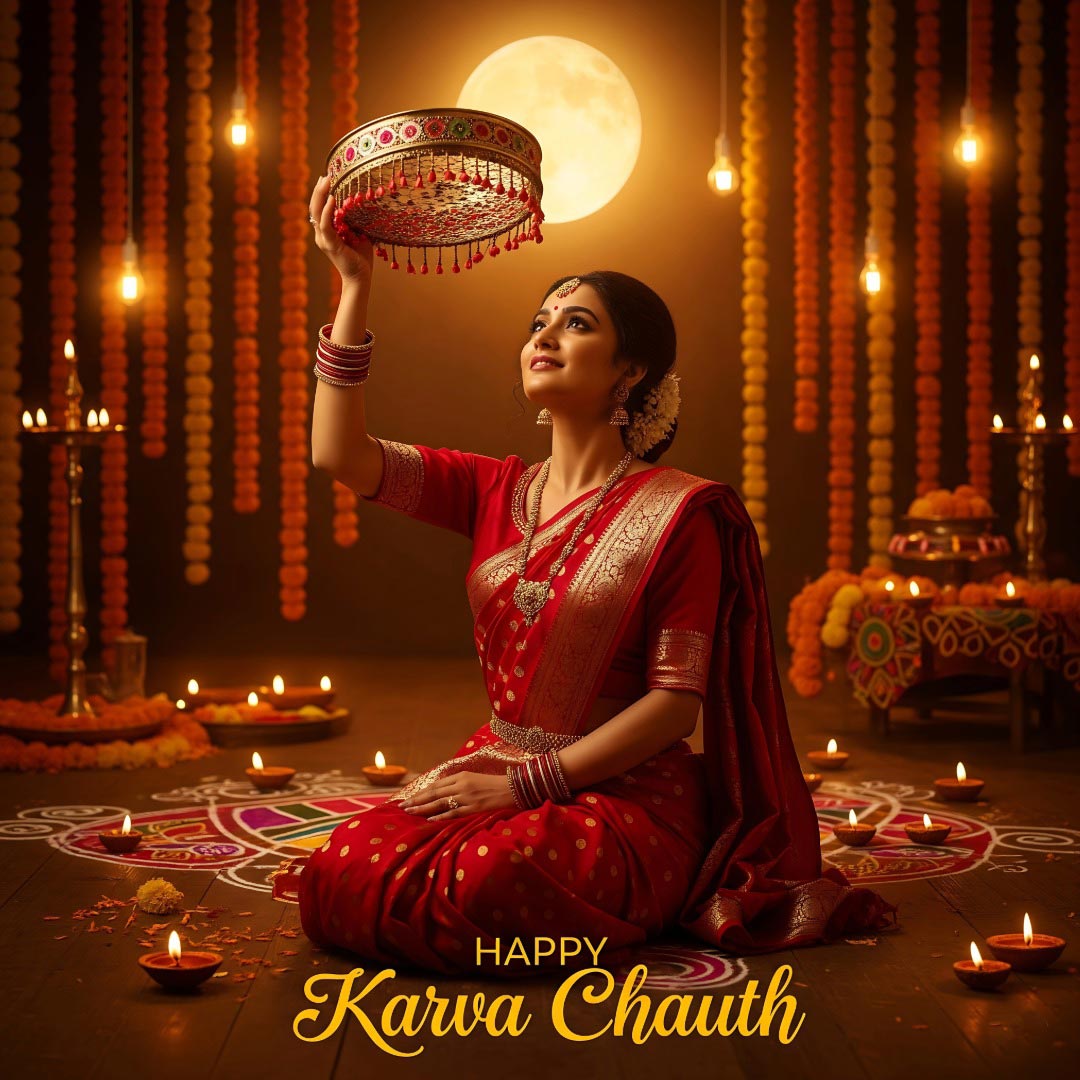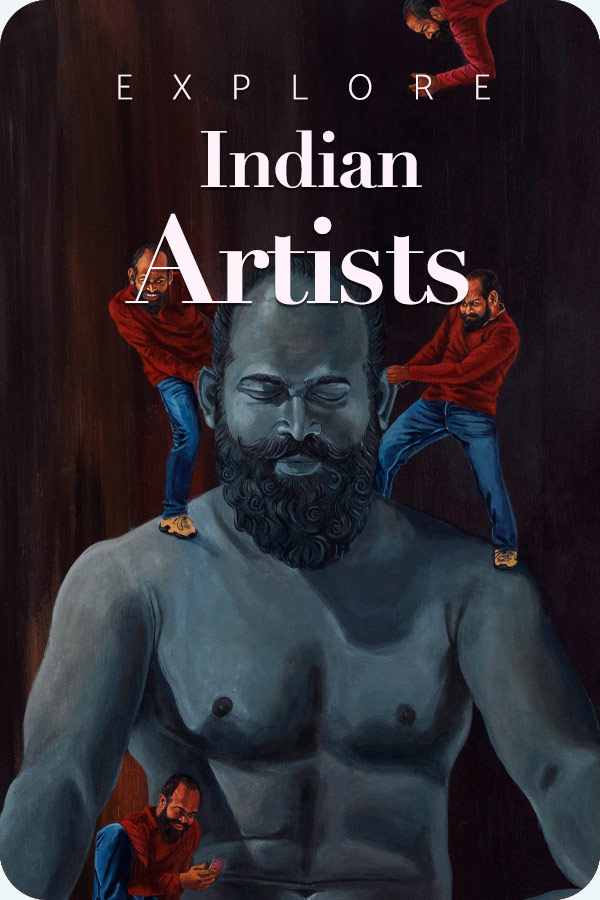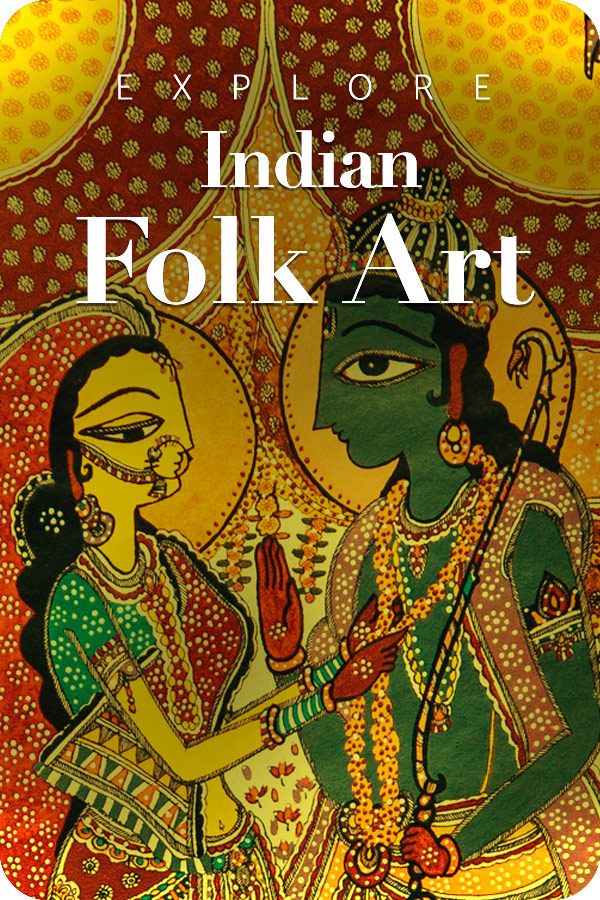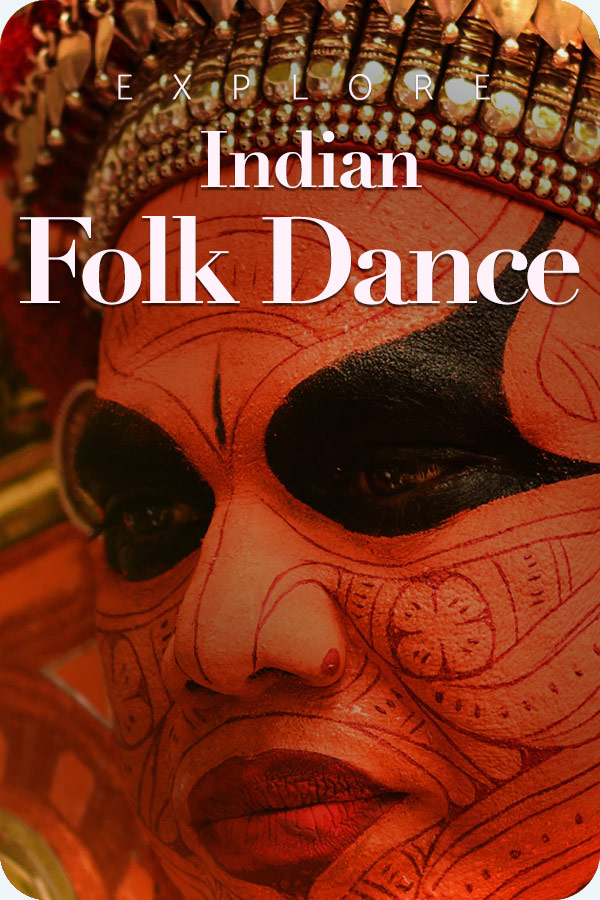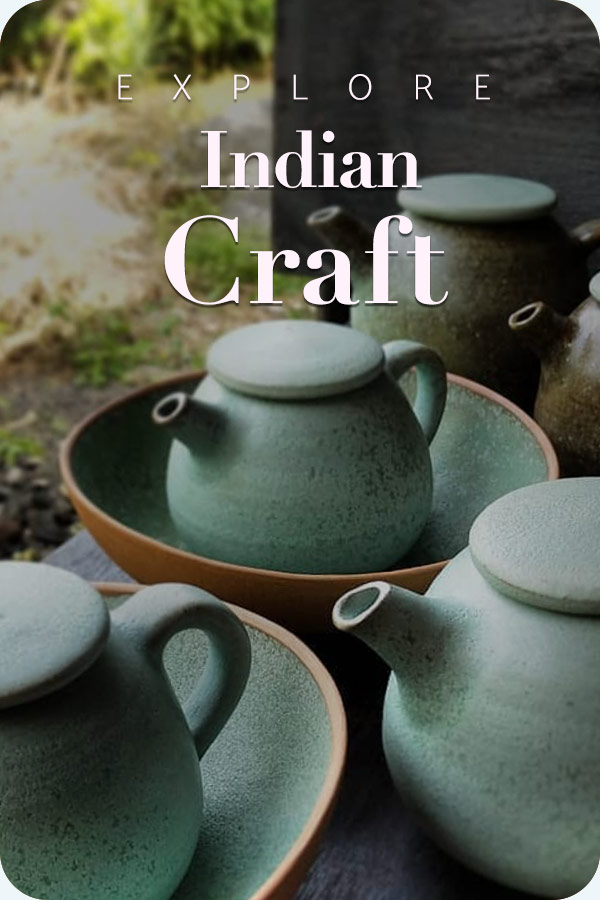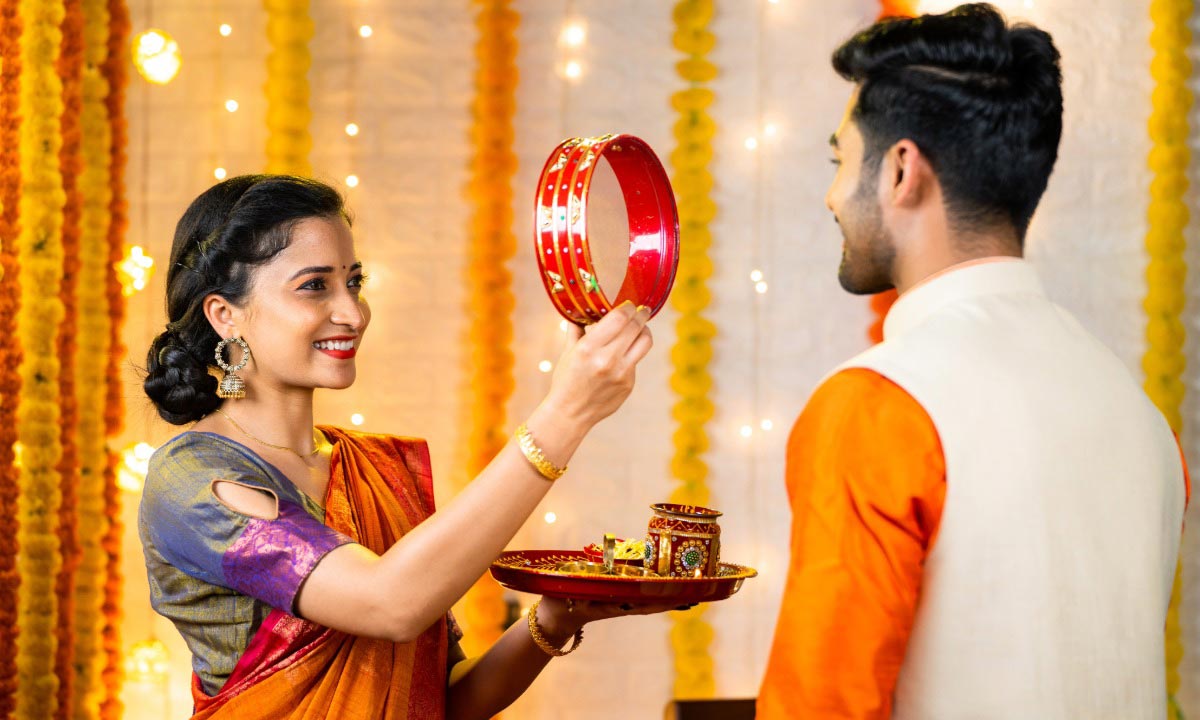
Every October, as the cool autumn breeze comes in and with it, the full moon begins its slow descent, an all-powerful traditional tapestry settles down in millions of homes across India. This cultural endeavour is observed by the married women as Karva Chauth, a tradition that is as old and as deep as devotion, partnership, and faith. For one complete day, the wife observes a rigorous Nirjala Vrat (fast without water) for the longevity and prosperity of her husband, taking a simple abstinence into a colourful, emotional event. From the spiritual experience of the pre-dawn meal to the anxious, collective wait for the first sighting of the moon, Karva Chauth is a living prayer, crafted carefully into a cultural adrenaline rush of faith, commitment, and love. It is more than a practice; it’s annual reconstruction of the sacred bond of marriage, with glittering saris and mehndi ensuring the completion of the event with spirit.
In the days leading up to the big day, excitement builds for this beloved hour of married affection. No matter whether you are fasting for the first time, or you have been celebrating Karva Chauth for decades now, here is your go to guide for the perfect Karva Chauth.
Karva Chauth 2025 & Timings
This year, Karva Chauth falls on Friday, 10 October 2025. According to Hindu Panchang:
| Event | Date and Timings |
|---|---|
| Date | Friday, 10th October 2025 |
| Chaturthi Tithi Begins | Thursday, 9th October 2025 at 10:54 PM |
| Chaturthi Tithi Ends | Friday, 10th October 2025 at 7:38 PM |
| Puja Muhurat | Friday, 10th October 2025 from 5:57 PM to 7:11 PM |
| Moonrise for Breaking Fast | Friday, 10th October 2025 at 8:13 PM |
Karva Chauth Rituals and Traditions
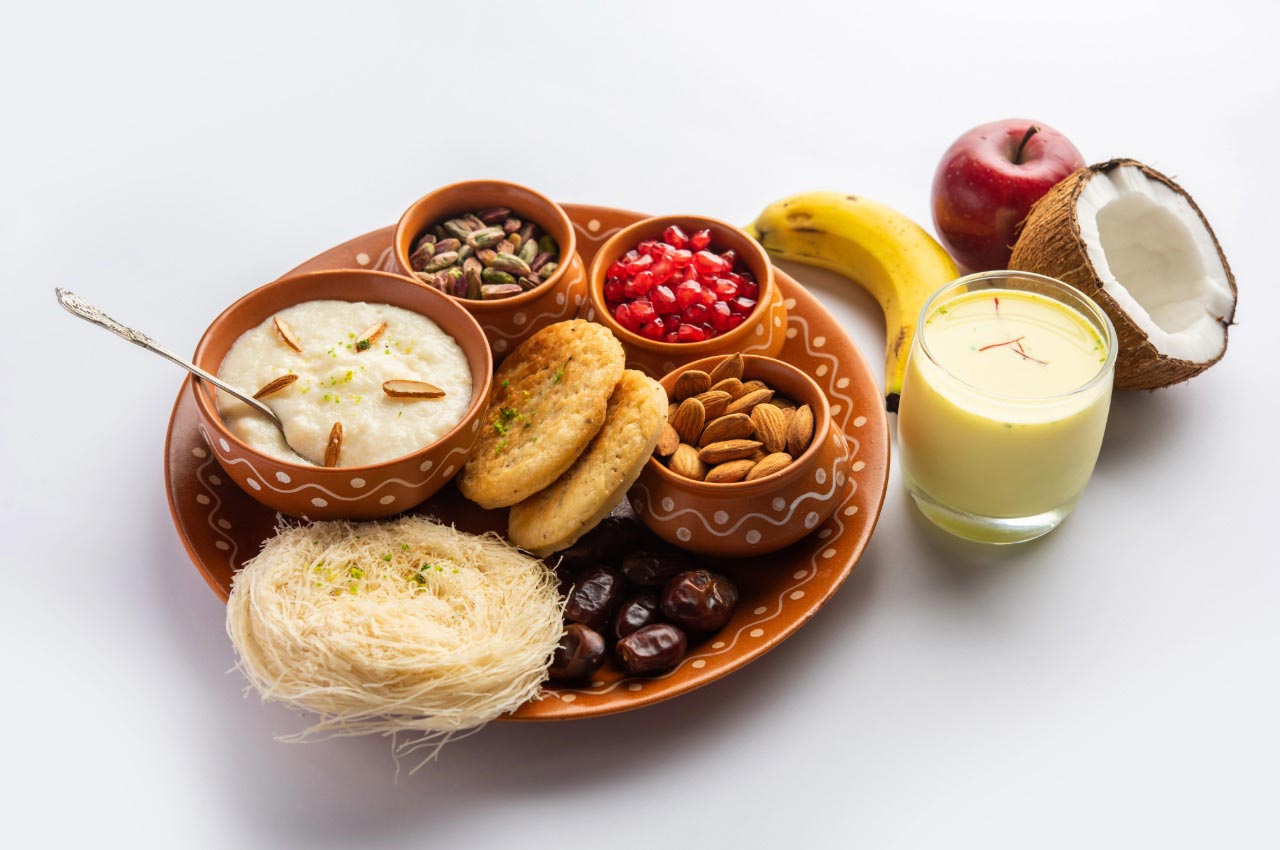
- Sargi: A meal that is given to the wife by her mother-in-law in the early morning before sunrise to nourish her throughout the day. It serves as a blessing.
- Puja and Vrat Katha: That evening, women dress in their best traditional clothes (Solah Shringar) to pray to Goddess Parvati and listen to the Vrat Katha (story).
- Moon Sighting: Until the wife sees the moon, she does not break her fast. She sees the moon first through a sieve, offers water (or arghya), and then sees her husband.
- Breaking the Fast: The husband then offers his wife the first sip of water and bite of food and officially completes the ritual honoring her commitment.
Regional Celebrations of Karva Chauth
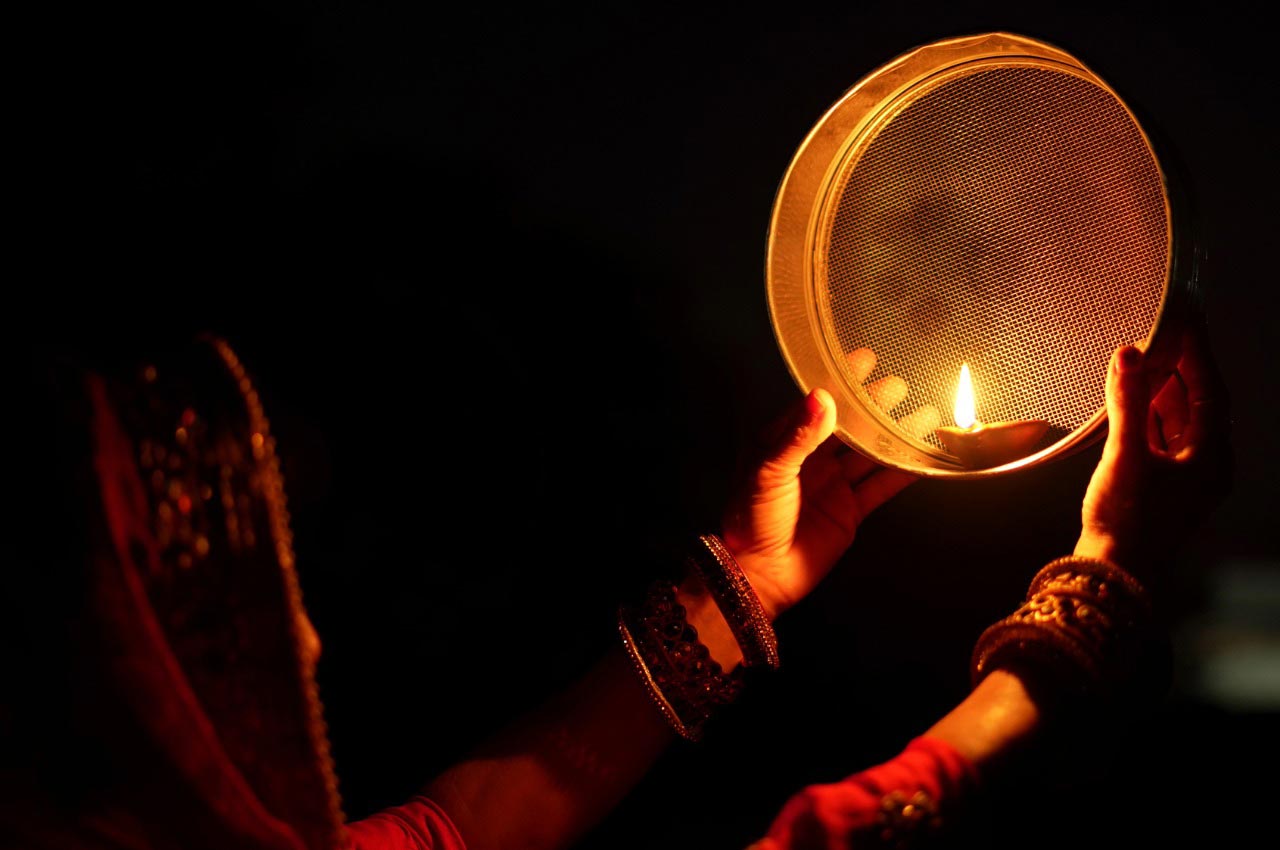
While the underlying theme remains constant, a fast for the welfare of the husband lasting a full day, the methods, foods, and ambiance differ significantly throughout India.
Cultures of North India (Punjab, Haryana, Delhi, UP)
In some of the states of like Punjab, Haryana and Delhi, Karva Chauth is likely celebrated in the most majestic form. In the context of the Sargi, the daughter’s mother and mother-in-law are likely to give gifts to their daughters and daughters-in-law. The evening ceremony is characterized by the gathering of neighbors, wearing bridal clothing, sharing the katha. The meal that ends the fast is typically a banquet of local favorites such as aloo ki sabzi, puri, and sweets made with homemade ghee.
Traditions of Rajasthan and Madhya Pradesh
In Rajasthan, the connection with the Karva pot may be rooted deeper. A well-known local tradition is praying to Gaur Mata, whose image is often made of soil and cow dung, although nowadays these images are usually made from other substitutes. Rajasthani customs also endorse the telling of folk stories or songs specific to the area and culture. Similarly, in Madhya Pradesh, the women are highly devoted to the fast with some much worshiping Lord Ganesha in tandem with Parvati.
Regional Variations
There are subtle but significant differences. In certain areas of Uttar Pradesh, the Soot Feni (a sweet, milky dish) is part of the Sargi. In some areas of Punjab, the Baya, a custom where the bride’s mother gives gifts to her daughter (the bride) and her new husband (the son-in-law) would reinforce the connection between her family and the bride’s new family. Variations are normal where one sentiment can be displayed in a variety of local practices.
Cultural and Social Significance
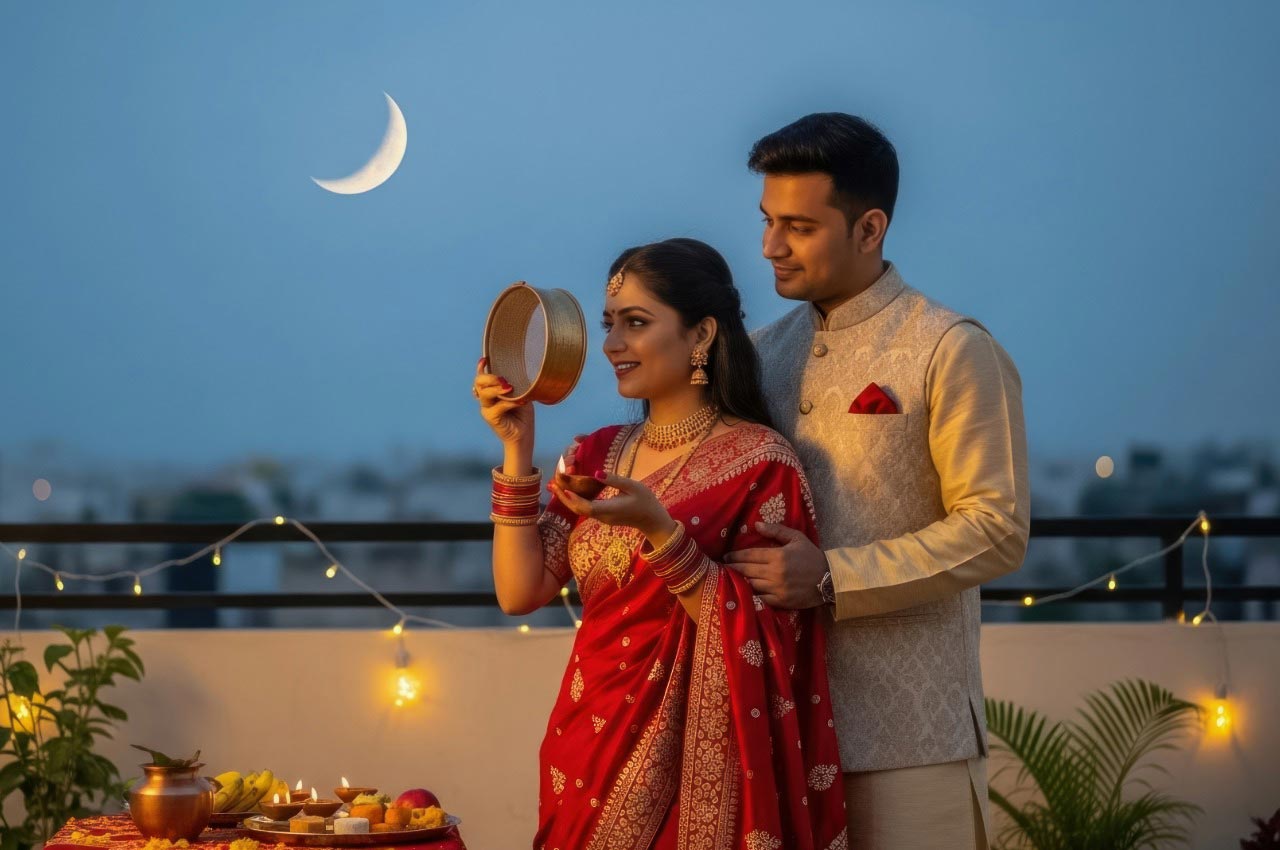
Karva Chauth is often examined from a modern angle that questions the essence of fasting. Regardless of this interpretation, it continues to engage profound cultural understanding.
Karva Chauth is, at its core, a renewing of vows that occurs annually. It represents the three foundational elements of enduring marriage:
- Devotion (Shraddha): The wife’s fasting is a selfless act of love.
- Trust (Vishwas): The husband returning her devotion in the sip of water he offers.
- Partnership: The modern phenomenon of men joining their wives in fasting has changed the ritual from patriarchal duty to actual shared commitment, which also serves as another pillar of a marriage focused on shared commitment.
The celebration has also been able to adapt to modern times. Technology is integral today, and social media is full of beautiful pictures of women’s Solah Shringar and theme mehndi designs, creating community even for gals who are alone fasting. And perhaps the modern take is less duty and more about choice and celebration so that the fast is now one of love and commitment, it has shifted from duty to choice.
Conclusion
Karva Chauth is a timeless celebration on the ancient pathways of religion, that still merges sanctity from millennia past, and the kindred attitude of living in reciprocity today. Karva Chauth illustrates the old truism- that love is a force that conquers all, all if it is built on commitment.
FAQs on Karva Chauth 2025
